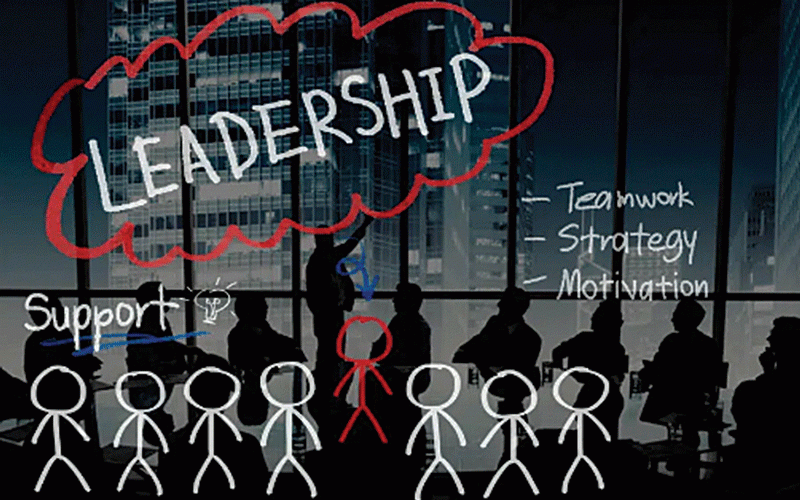
guest column:Emmanuel Zvada
Finding the best personnel that can easily fit in your culture can be a difficult task, especially for human resources managers.
In that sense, it is great to note that when there are open posts within the organisation, there is also a need to promote from within.
Internal promotions in the company can be a great way to foster talent within an organisation, even though there are a number of factors to be considered before making the decision to promote internally.
Upward mobility or promotion is not only a way to add more responsibilities to an employee, but is a major form of boosting employee motivation and morale.
Promoting employees is more difficult if one has to decide between a few different workers. Here are some tips on how to handle internal promotion.
Normally, it is easy to say that a hardworking employee, who is well qualified, deserves promotion, but there are a variety of factors to be considered.
The reason is that the same employees who are efficient might not possess leadership or communication skills. Before considering promoting someone, here are a few factors that you should consider:
- Chamisa under fire over US$120K donation
- Mavhunga puts DeMbare into Chibuku quarterfinals
- Pension funds bet on Cabora Bassa oilfields
- Councils defy govt fire tender directive
Keep Reading
Willingness to achieve more
A willingness to keep learning is the trait managers say is most important for an employee’s career success. Organisations want employees who can think on their feet and act. Normally, these are the kind of employees who have a long-term career plan and are more likely to take initiatives in organisations.
To consider an employee for promotion, look at their eagerness to learn new things. That employee must be someone who will consider challenges not as barriers, but as stepping stones for success.
To succeed in most promotion initiatives, organisations should choose someone who has a passion for learning and the ability to continue to grow and stretch their skills to adapt to the changing needs of the organization.
This is the reason why a lot of companies consider promoting those who have taken up post-graduate studies. It not only shows how willing the person is to grow and achieve better things in life.
Ability to work effectively as a team
Teamwork is the collaborative effort of a team to achieve a common goal or to complete a task using different talents, but with the same goal. The ability to effectively work as part of a team is critical to success in most organisations.
Employers want employees who can effectively work as part of a team, not as a lone contributor. Regardless of your role, you need to be able to work well with others.
Working effectively in a team environment requires tact, patience, and a willingness to work in concert with your colleagues. Creativity thrives when people work together as a team. An effective team enjoys working together and shares a strong bond as it ensures confidence in each other’s distinct abilities.
Expertise and mastery of work.
Certainly, not everyone will reach mastery, but we know that as people strive to move up the ladder, they get better at their jobs.
As they do so, they exhibit increasing performance fluency, agility, and the ability to execute their tasks without errors.
Fluency refers to the smoothness with which they perform their jobs at workplaces. On the same note, proficiency is a big sign of mastery as it shows how experienced one is with the task.
However, someone worthy to be promoted must know how to perform and to teach others. He or she must be able to train new members of his team and produce skilled employees for the organisation.
Flexibility and openness to suggestions.
In the business sense of the word, adaptability entails being open to new ideas and concepts. Being open-minded means, you have a willingness to listen to other ideas. An attitude of open-mindedness is also strongly correlated to workplace flexibility.
Imagine promoting someone who loves to decide without checking if the decisions were the effective solutions to the problems.
No matter how skilled an employee is, being too tenacious will lead to failure. Just like the willingness to achieve more, there must be a willingness to learn from the feedbacks of others, as well as the ability to shift to different points of view in order to learn new ways of doing things, or prevent problems for the team.
Knowing how to be flexible in the workplace when obstacles come your way will catapult you toward success, hence when you have such kind of trait, you are likely to be considered as well.
Ability to influence and persuade others positively
In most roles, you need other people to do things so you can do your job. Usually, you need to have the skill to develop mutually beneficial relationships in the organisation so you can influence and persuade people to do what you need them to do in turn ensuring that you are delivering what they need.
Promotions almost always come with an increase in working with and/or managing people. People skills like communication, conflict resolution, attitude, and more are all incredibly important for leaders.
You need to be able to negotiate win-win solutions to serve the best interests of the company and the individuals involved. Commitment to the job
Organisations need employees who are not only committed to the goals and initiatives that affect the bottom line, but who also are committed to their particular positions. Job commitment is the feeling of responsibility that a person has towards the mission and goals of an organisation.
When an individual has job commitment, he or she is more likely to perform tasks and responsibilities that will help an organisation achieve its goals.
Employees project a committed attitude by showing a willingness to do whatever it takes to fulfil the duties of their positions via the development of new ideas to make the company even better.
When committed individuals work together as a team towards company goals, everyone benefits.
Productivity, performance and experience
A competitive model of promotion is a method in which employees have to prove their worth to employers in order to be promoted to a higher rank or position.
Unlike the noncompetitive method, this method considers employee performance, productivity, skills, experience, knowledge and other such factors.
If you want to get the best performance and ensure productivity, employers should take great pains to prompt employees that have the education and experience and are already performers.
Without an effective promotions process, the emotions and actions of a dejected employee can escalate, threatening client relationships, production, employee retention and even the company’s bottom line.
Organisations should have a clear employee promotion policy which presents issues to do with advancing and promoting internal employees.
It will be great to invest in already existing employees and reward those who perform well.











